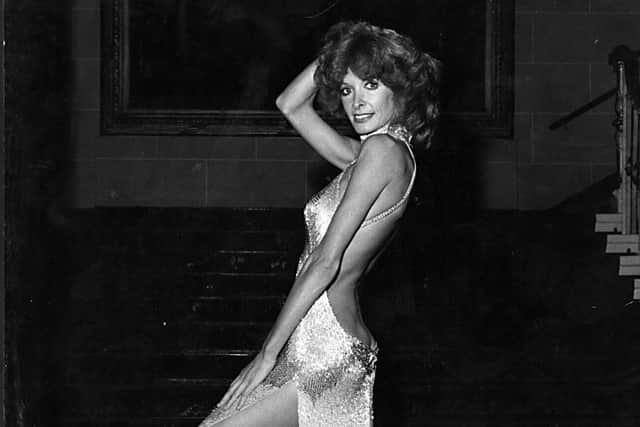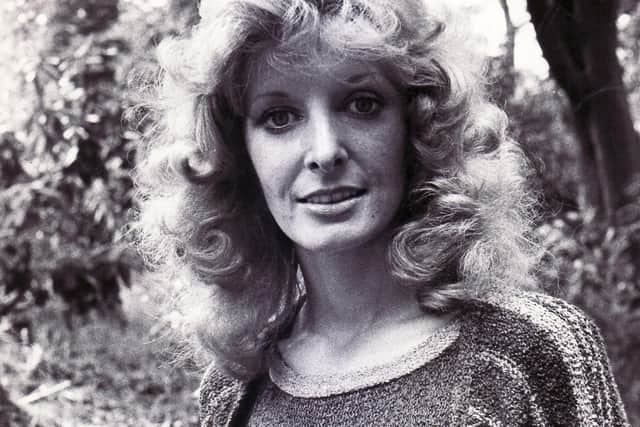Marti Caine: The story of the late Sheffield-born queen of working men's clubs and comedy
and live on Freeview channel 276
As we approach the three-decade mark since Marti Caine’s passing, and nearly half a century since her triumphant victory on ‘New Faces,’ the iconic TV talent show that propelled her from smoky concert halls to the illustrious cabaret circuit and eventually national television fame, her enduring legacy remains palpable.
Born Lynn Denise Sheppard in 1945, just months before the end of World War Two, she had troubled upbringing on a Sheffield council estate. She suffered sexual abuse from her paternal grandfather and her mother having a history of alcohol and drug abuse.
Advertisement
Hide AdAdvertisement
Hide AdAt the age of 17, Caine married a local butcher’s boy and became in her own words “just another starry-eyed wannabe… married with two babies, an ex-beauty queen, stuck on a council estate, with little hope of fulfilling any dreams for a better life”.


Despite her dreams – fame was not the initial spur for Marti Caine when she made her early steps into the limelight. An unpaid bill of pounds £150 – her mother’s funeral expenses – was what pushed the 19-year-old Lynne Stringer (as she was then called) into auditioning for Ernest “Honest” Johns at the Chapeltown Working Men’s Club outside Sheffield.
In a twist of fate, driven by the weight of debt and emboldened by a swig of brandy, Marti Caine embarked on that pivotal audition. Armed with only her voice and a courageous spirit, she chose two songs – “Puppet on a String” and “Summertime” – as her vessels of versatility. Yet, her voice betrayed her nerves, quivering like the tremors of Edith Piaf afflicted by Parkinson’s disease, as she would later recollect.
But at that juncture, she was neither the professional Marti Caine nor the familiar Lynne Stringer. For a fleeting three weeks, she embraced the moniker Sunny Smith, followed by a brief stint as Zoe Bond. Dissatisfied with both, she scoured the pages of a gardening book, seeking inspiration for a name that would resonate. It was then that her husband, Malcolm Stringer, ingeniously tinkered with a tomato cane, birthing the name Marta Cane. A serendipitous misinterpretation at the club she was performing at led to her being billed as Marti Caine.
Advertisement
Hide AdAdvertisement
Hide AdAmid the luminous spotlight of the stage, Marti discovered an intriguing truth: singing did not come as naturally to her as the art of humour. A striking young woman in a figure-hugging mini-dress, she defied norms by stepping into the realm of stand-up comedy within the working men’s clubs of the 1960s. Her presence was a refreshing novelty in a sea of beer-swilling chauvinists. Walking the tightrope between challenging male ego and affirming established perceptions, she carved her own niche.


She started off as a compere at Sheffield’s mighty Fiesta and ended up as the headline act. She cut her teeth at working men’s clubs up and down the country.
Her rise to fame was on one hand remarkable – but on the other hand an example of what a tried and tested route the working men’s club scene offered: Little & Large, Cannon & Ball, Duggie Brown, Bobby Knutt, Bernie Clifton and Larry Grayson. The industry deserves its own hall of fame.
- Article inspired by the ‘Dirty Stop Out’s Guide to Working Men’s Clubs’ – available from www.dirtystopouts.com